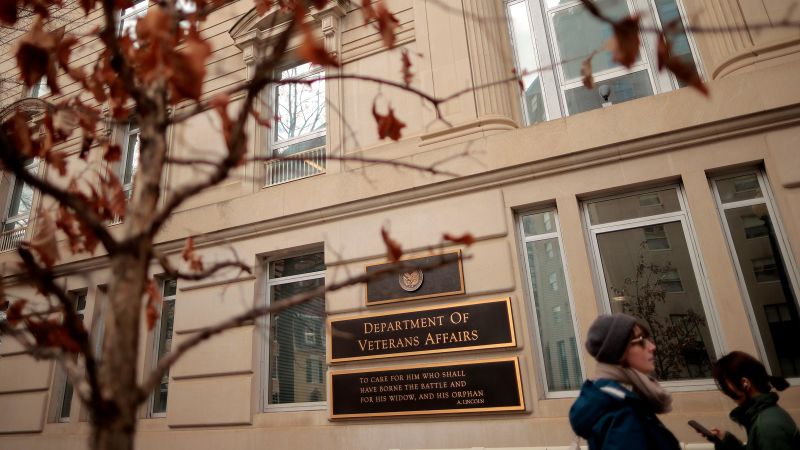Advocates for affordable housing and Congressional Democrats are expressing deep concerns over the potential rise in foreclosures as the Department of Veterans Affairs (VA) prepares to discontinue a key mortgage rescue program designed to aid financially troubled veterans. This phase-out, which is set to begin this week, has significant implications for a vulnerable population that may soon find itself without crucial support.
Starting Thursday, the VA will halt enrollment in the Veterans Affairs Servicing Purchase Program (VASP). This initiative was launched last year during the Biden administration, specifically designed to assist veterans struggling to keep up with their mortgage payments. The decision to end VASP has raised alarms among industry experts and advocacy groups alike due to the lack of an immediate replacement plan.
Justin Wiseman, the vice president for residential policy at the Mortgage Bankers Association, highlighted the urgency of the situation when he stated, “We are very worried.” His sentiment emphasizes the dire circumstances that veterans may face without the benefits afforded by VASP. He added, “We don’t like to foreclose on anyone, and especially not on veterans,” acknowledging that the absence of a supportive framework could lead to increased foreclosures among veterans, a population already facing numerous challenges.
Echoing these concerns, the Center for Responsible Lending (CRL), a nonprofit advocating for equitable housing practices, issued a warning to Congress. The organization stress that tens of thousands of veterans could be in jeopardy of losing their homes. In a letter to lawmakers, they pointed out that as of February 2025, more than 81,000 service members and veterans were already delinquent on their VA loans, having missed three or more payments, which places them at risk of foreclosure. The CRL urged that without VASP or an alternative relief program, many veterans would be faced with the harrowing choice of selling their homes or facing foreclosure.
In defense of the program’s cessation, the VA has pointed out that existing enrollees will not be adversely affected and it has emphasized other available programs aimed at helping veterans secure home loans. However, critics of the decision highlight the urgency for a replacement program, as it can significantly impact the livelihood of many veterans.
While the VA has not yet proposed a substitute for VASP, some Republican lawmakers are advocating for the introduction of an alternative program that would still provide necessary support for struggling borrowers. For instance, Illinois Rep. Mike Bost and Wisconsin Rep. Derrick Van Orden are promoting the idea of a partial claims program, which would help homeowners by offering interest-free loans to cover their missed payments.
The VASP was initiated in May 2024 and has already facilitated the purchase and modification of more than 17,000 loans, amounting to over $5.48 billion. It was established as a response to a similar program that was ended in 2022 due to economic shifts caused by the COVID-19 pandemic. Nevertheless, this current phase-out coincides with substantial budget reductions within the VA, as Secretary Doug Collins has indicated plans to terminate around 70,000 positions throughout the agency.
Lawmakers and advocates from the Democratic Party have voiced their opposition to this decision vehemently. Key figures like Richard Blumenthal, a prominent member of the Senate Veterans Affairs Committee, deem the program’s termination “cruel and wrong,” arguing that it fundamentally disregards the rightful benefits earned by veterans. They advocate for the maintenance of a reliable program, cautioning that thousands may be forced into foreclosure as a consequence of this decision.
Conversely, the VA maintains that current participants will remain unaffected and asserts that various housing assistance options still exist for veterans. VA press secretary Peter Kasperowicz reiterated that the phase-out would not impact those who finalize their enrollment before the cutoff.
During this critical time, organizations like the Veterans of Foreign Wars (VFW) have rallied to support their members, encouraging proactive engagement with lenders to mitigate the risks associated with the impending changes. Rob Couture, the director of public affairs for the VFW, emphasized the need for early action in light of the impending phase-out, stressing the importance of clear communication between veterans and their mortgage providers.
In conclusion, the decision to phase out the VASP program raises significant concerns about the welfare of veterans facing financial difficulties in a challenging housing market. As discussions continue in Congress regarding the introduction of replacement initiatives, the urgency for effective solutions grows ever more pressing, with the stakes impossibly high for those who have served the nation.



